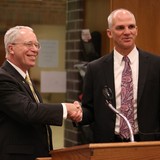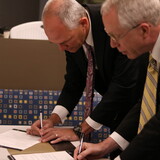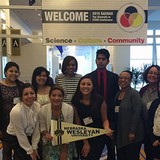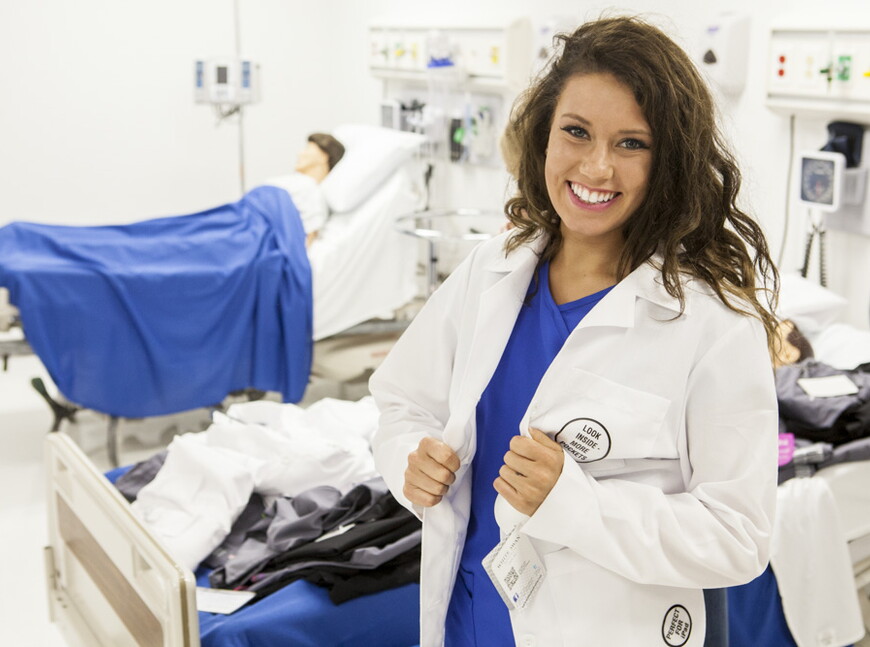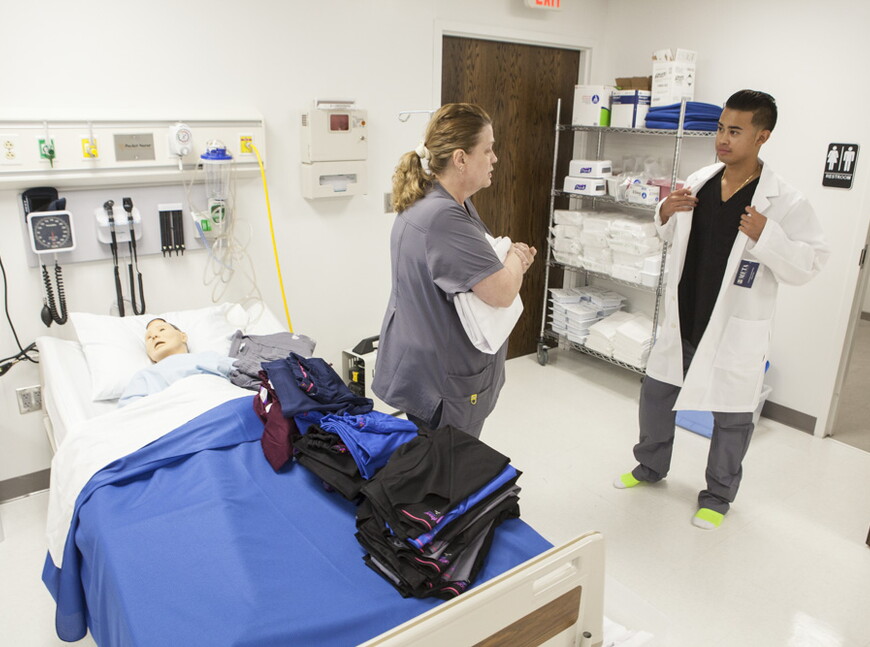On the eve before their new academic year, 18 Nebraska Wesleyan University students took a walk down the halls of the Olin Hall of Science basement until they came upon a bright white light.
The stark brightness was the entry to their new home of sorts — a new nursing skills lab for these students who have been accepted into the first cohort of the Pre-Licensure Bachelor of Science in Nursing program.
Two years ago the university announced plans to start the pre-licensure bachelor’s degree program. Linda Hardy, assistant dean for University College of Nursing, said more is expected of today’s nurses. In addition to treating patients, they need to be able to think critically and communicate effectively.
"A liberal arts curriculum allows students to have a very broad perspective,” said Hardy. “It enables students to have a foundation to apply in the nursing program," Hardy said.
The BSN program merges the university’s liberal arts curriculum with clinical coursework. Prerequisite courses — which the current nursing students started last year — help develop critical thinking, decision-making, and communication skills while their nursing classes gain them real experience in the new skills labs and clinical studies.
After completing their required prerequisites, interested students apply to NWU’s nursing program. Applicants complete a Certified Nursing Assistant (CNA) course and test, a nursing admission exam, and an interview with the program's board members.
Sophomore Zachary Petitt, a participant in the program's first cohort, found the admission process to be stressful but rewarding, once accepted into the program.
"It can be a stressful time but if you stay on top of everything and focused, the reward of getting accepted makes it so worth it,” said Pettit, a sophomore from Lincoln. "I anticipate the program to be a challenging yet very rewarding experience, and I am looking forward to learning about all the vast fields that nursing has to offer."
The BSN program provides students access to simulation and skills labs on campus that create an authentic learning environment. In these labs students work with interactive mannequins that are treated as real patients. Additionally, the nursing department collaborates with the theater department to train student actors to act as medical patients in clinicals that require real patients.
"It's real as can be for students," Hardy said. "They are actually going through what they would in a real patient experience."
Outside of the classroom students are required to participate in clinical studies to expand on their learning and hands-on experiences. Students team up in groups of six or seven and under faculty supervision use what they learn to take care of real patients in real hospital environments.
"Students need to have this experience before they graduate and go out into the workforce," said Long.
And it’s those kinds of experiences that the new nursing students are eagerly awaiting.
"I hope this program encourages my classmates and I to become confident and capable nurses," said Sydney Wergin, a sophomore from Aurora. "I want to learn how to be a caring, positive, and confident influence in my patients' lives."
###
Story by Quinn Hullett, Public Relations Intern







